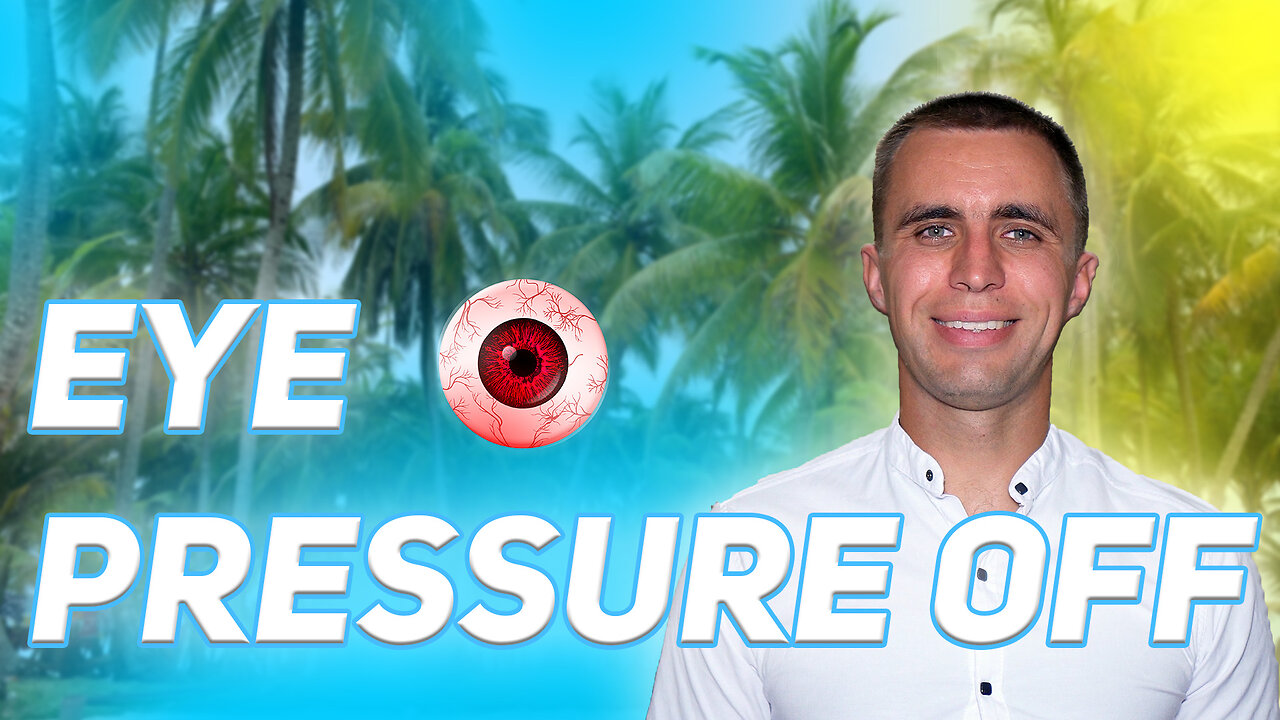Premium Only Content

Natural Glaucoma Treatment: 5 Ways to Lower Eye Pressure Naturally
Natural Glaucoma Treatment: 5 Ways to Lower Eye Pressure Naturally
Glaucoma is a serious eye condition characterized by elevated intraocular pressure (IOP), which can damage the optic nerve and lead to vision loss if left untreated. While medical treatments are essential for managing glaucoma, certain natural approaches can complement traditional therapies and help lower eye pressure. Here are five ways to lower eye pressure naturally.
1. Maintain a Healthy Diet
A balanced diet rich in nutrients can play a crucial role in managing eye health and reducing intraocular pressure. Focus on incorporating the following foods into your diet:
a. Leafy Greens
Leafy greens like spinach, kale, and collard greens are high in antioxidants and nitrates, which can improve blood flow and support eye health. Studies suggest that increased consumption of leafy greens is associated with a lower risk of glaucoma.
b. Fruits and Vegetables
Brightly colored fruits and vegetables, such as carrots, sweet potatoes, bell peppers, and berries, are rich in vitamins A and C, which are essential for eye health. These nutrients help protect the optic nerve and improve overall eye function.
c. Omega-3 Fatty Acids
Foods rich in omega-3 fatty acids, such as salmon, mackerel, flaxseeds, and walnuts, can help reduce inflammation and improve eye health. Omega-3s are beneficial for maintaining proper ocular pressure and preventing glaucoma progression.
2. Exercise Regularly
Regular physical activity can help lower intraocular pressure and improve overall cardiovascular health. Exercise improves blood flow and can help manage conditions like hypertension and diabetes, which are risk factors for glaucoma.
Recommended Exercises:
Aerobic Activities: Walking, jogging, cycling, and swimming can help reduce eye pressure.
Strength Training: Incorporating moderate strength training can support overall health and complement aerobic exercises.
Yoga: Certain yoga poses can help reduce eye pressure. However, avoid positions that involve prolonged inversion (e.g., headstands) as they can increase eye pressure.
3. Manage Stress
Stress and anxiety can contribute to elevated eye pressure. Implementing stress management techniques can help maintain lower intraocular pressure and improve overall well-being.
a. Mindfulness Meditation
Practicing mindfulness meditation can help reduce stress and improve mental health. Spend a few minutes each day focusing on your breath and being present in the moment.
b. Deep Breathing Exercises
Deep breathing exercises can help calm the mind and reduce stress. Practice deep, slow breathing for a few minutes daily to promote relaxation.
c. Yoga and Tai Chi
These mind-body practices combine physical movement, breath control, and meditation to reduce stress and improve overall health.
4. Stay Hydrated
Proper hydration is essential for maintaining healthy eye pressure. Dehydration can lead to increased eye pressure, so it's important to drink enough water throughout the day.
Tips for Staying Hydrated:
Drink Water Regularly: Aim to drink at least 8 glasses of water per day. Adjust your intake based on your activity level and climate.
Avoid Sugary and Caffeinated Beverages: These can lead to dehydration. Opt for water, herbal teas, or diluted fruit juices instead.
Monitor Urine Color: Light-colored urine typically indicates proper hydration, while dark urine may suggest the need for more fluids.
5. Use Herbal Supplements
Certain herbal supplements have been shown to support eye health and reduce intraocular pressure. Before starting any supplements, consult with your healthcare provider to ensure they are safe and appropriate for your condition.
a. Ginkgo Biloba
Ginkgo biloba is known for its neuroprotective properties and can improve blood flow to the optic nerve. Some studies suggest it may help lower eye pressure.
b. Bilberry Extract
Bilberry extract contains antioxidants that can support eye health and reduce eye pressure. It is often used to improve night vision and prevent eye strain.
c. Cannabis (CBD Oil)
Cannabidiol (CBD) has shown promise in reducing intraocular pressure. However, more research is needed, and it is essential to use CBD under medical supervision due to potential legal and health considerations.
-
 LIVE
LIVE
LFA TV
2 hours agoLFA TV ALL DAY STREAM - MONDAY 8/18/25
6,207 watching -
 58:23
58:23
JULIE GREEN MINISTRIES
2 hours agoJUDGEMENT IN DC IS ABOUT TO INTENSIFY
42.1K117 -
 LIVE
LIVE
Chicks On The Right
3 hours agoLibs freak over Putin meeting, Rubio SHINES, Gavin spiraling, Kamala drunk-talks again
1,863 watching -
 LIVE
LIVE
Welcome to the Rebellion Podcast
18 hours agoA Case of the MonJays - WTTR Podcast Live 8/18
144 watching -
 LIVE
LIVE
The Bubba Army
2 days agoZelensky SLAMS Trump-Putin Meeting - Bubba the Love Sponge® Show | 8/18/25
2,689 watching -

PudgeTV
10 hours ago🔵 StarCraft 2 Live Gaming on Rumble | Can the Terran Survive the Protoss Master Race?
9.57K -
 9:49
9:49
MattMorseTV
18 hours ago $30.57 earnedNewsom's CAREER just WENT UP IN FLAMES.
76.3K162 -
 21:58
21:58
Ohio State Football and Recruiting at Buckeye Huddle
10 hours agoIs Arch Manning Ready for the Ohio State Defense?
8.24K1 -
 26:00
26:00
ariellescarcella
14 hours agoGaslighting The TikTok Generation Into Chaos : Psych Deep Dive
11.6K4 -
 55:28
55:28
SGT Report
12 hours agoTHE MIRACLE OF CHLORINE DIOXIDE -- Kerri Rivera
27.5K30